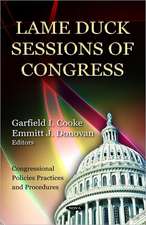German Foreign and Security Policy
Editat de Leah N. Bowersen Limba Engleză Hardback – 12 mai 2009
Preț: 480.97 lei
Preț vechi: 652.83 lei
-26% Nou
Puncte Express: 721
Preț estimativ în valută:
92.05€ • 95.37$ • 76.82£
92.05€ • 95.37$ • 76.82£
Carte disponibilă
Livrare economică 01-15 martie
Preluare comenzi: 021 569.72.76
Specificații
ISBN-13: 9781606921500
ISBN-10: 1606921509
Pagini: 188
Dimensiuni: 187 x 265 x 18 mm
Greutate: 0.59 kg
Ediția:New.
Editura: Nova Science Publishers Inc
ISBN-10: 1606921509
Pagini: 188
Dimensiuni: 187 x 265 x 18 mm
Greutate: 0.59 kg
Ediția:New.
Editura: Nova Science Publishers Inc
Cuprins
Preface; German and Foreign and Security Policy: Trends and Transatlantic Implications; Germany and Europe: New Deal or Deja Vu?; Coalition Agreement; Index.











